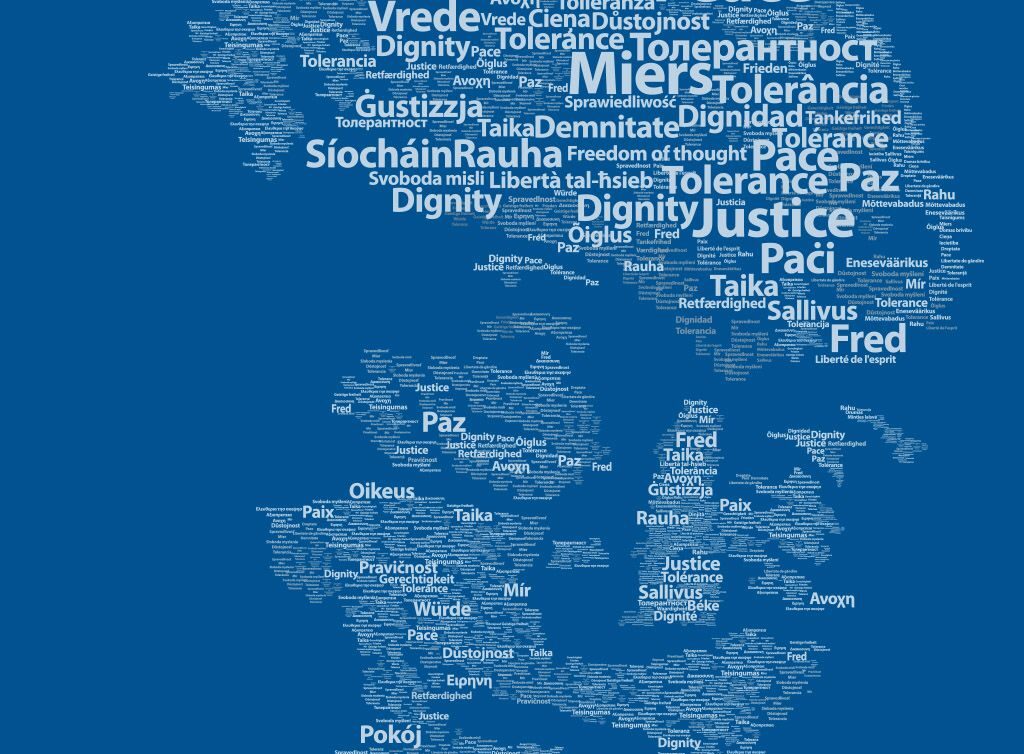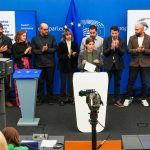The two journalists, imprisoned in Belarus and Georgia, are the winners of the Sakharov Prize for Freedom of Thought 2025, which they will receive at a ceremony in the EP on 16 December.
Announcing the award in the Chamber on Wednesday, EP President Roberta Metsola said: “By awarding this year’s Sakharov Prize for Freedom of Thought to Andrzej Poczobut from Belarus and Mzia Amaglobeli from Georgia we honour two journalists whose courage shines like a beacon to all those who refuse to be silenced. Both have paid a high price for speaking truth to power and have become symbols of the struggle for freedom and democracy. Parliament stands with them and with all those who continue to demand freedom”.
Andrzej Poczobut is a journalist, essayist, blogger and activist from the Polish minority in Belarus. Known for his strong criticism of the Lukashenko regime and his work on history and human rights, he has been arrested several times. Incarcerated since 2021, he faces an eight-year prison sentence. His health has deteriorated and, despite not receiving the medical care he needs, he continues to defend freedom and democracy. There is no information on his current state of health and his family is not allowed to visit him.
In a resolution adopted on 15 March 2023, Parliament called for the immediate and unconditional release of Andrej Poczobut, considering that the charges against him are “politically motivated” and “aimed at silencing independent voices and suppressing freedom of expression and association”.
Mzia Amaglobeli, a Georgian journalist and director of the Batumelebi and Netgazeti digital media, was arrested in January 2025 for participating in anti-government protests in Georgia. In August, she was sentenced to two years in prison for political reasons and became the country’s first female political prisoner since independence. An advocate of free speech, Amaglobeli has become the symbol of the pro-democracy movement in Georgia in opposition to the ruling Georgian Dream party regime since the October 2024 elections.
In a resolution adopted on 19 June 2025, Parliament called for the immediate and unconditional release of Mzia Amaglobeli in Georgia, condemning “the Georgian Dream party regime’s systemic attack on democratic institutions, political opposition, independent media, civil society and judicial independence”.
Parliament stands with defenders of democracy and freedom of expression
Parliament is a strong supporter of the democratic opposition in Belarus and awarded it the Sakharov Prize for Freedom of Thought in 2020. In May 2024, President Metsola signed a declaration of intent to strengthen cooperation between the European Parliament and democratic forces in Belarus. At a formal sitting in Strasbourg on 22 October 2025, Parliament received two prominent Belarusian opposition leaders, Sergey Tihanovski and Sviatlana Tsikhanouskaya, and also adopted a resolution on the situation in the country.
On Georgia, in November 2024 the Parliament called for new elections to be held after the October 2024 elections. In July 2025, MEPs adopted a resolution condemning the democratic regression and repression in Georgia, saying that the current government is jeopardising the country’s path to EU membership. The resolution also called on the European Commission to review the implementation of the Association Agreement with Georgia.
The Sakharov Prize for Freedom of Thought
Named after Soviet physicist and political dissident Andrei Sakharov, the Sakharov Prize for Freedom of Thought is the EU’s highest human rights award. Since 1988, Parliament has awarded it each year to individuals, groups or organisations in recognition of their work in defence of human rights, freedom of expression and democratic values.
Several Sakharov Prize laureates have subsequently been awarded the Nobel Peace Prize. The most recent is Venezuelan opposition leader Maria Corina Machado, who won the Sakharov Prize in 2024 and will be awarded the Nobel Peace Prize in 2025. Other examples include Nelson Mandela, Malala Yousafzai, Denis Mukwege, Nadia Mourad, Ales Bialiatski and Oleksandra Matviichuk.
More information: European Parliament







Leave a Reply